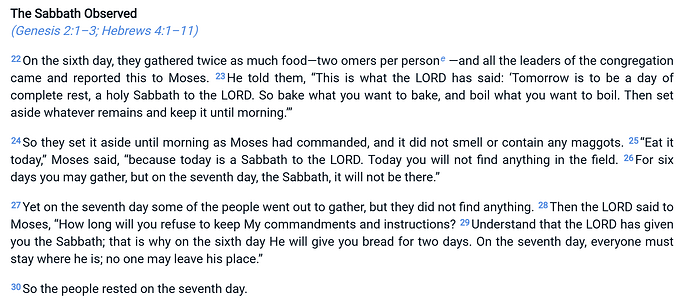I’m late to the party, but in a sense y’all are late to the party. I wrote a bunch about this stuff in relation to Genesis 2-3 five years ago. I’ll try not to inflict too much of it on you.
Children from birth until about the age of 7 are hard-wired to trust their parents, teachers and every adult in their path. Otherwise, it would be impossible for children to learn. Imagine a first-grader who doubted the teacher’s word that 2+2=4, or one who doubted that squiggly line drawn on the paper actually represented “two” of anything.
“Social learning” (or enculturation) is how kids come to understand what is “normal” speech and behavior in their culture. They trust their elders and imitate what they observe. If they have abusive, sadistic parents, they process that as normal and treat others accordingly, and vice versa. Look at the Ten Commandments. After the first four, which are specific to the worship of YHWH, the rest is stuff that every parent in every culture teaches their kids: Respect your elders, Be loyal to your family, Don’t hit or bite others, Don’t steal, Don’t lie, Don’t be jealous. The basics.
Morality develops in tandem with the brain and language. Children acquire the full grammar of their native language by about 5, but they don’t develop symbolic thinking until the age of 7. Simultaneously, that’s about the time most kids stop believing in Santa and lose absolute trust in their parents and teachers. They learn adults don’t always tell the truth. (Interesting footnote: prior to that age, our brains are subject to “childhood amnesia.” The only memories most people retain from childhood are those associated with trauma or deep emotional resonance. The rest are random fragments.)
So back to McClaren. His first two stages of spiritual development are entirely natural. Quoting myself:
In his 1932 classic, The Moral Development of the Child , Jean Piaget studied children of various ages playing games and concluded that the younger ones regarded rules “as sacred and untouchable, emanating from adults and lasting forever. Every suggested alteration strikes the child as a transgression.” This matches quite well the attitude of many interpreters toward the command not to eat from the Tree of Knowledge. The first humans should have accepted it without question, obeyed it and, presumably, lived forever in paradise. But is unquestioned acceptance of the rule truly a mature moral choice? I’d suggest that condition belongs to the state of childhood.
After age 7, children begin to take in a wider range of models to consider: peers, role models in the community, role models in the media, etc. By the age of 10, they’re capable of truly metaphoric thought, and by adolescence many often rebel against the norms they learned in childhood.
To quote myself again:
Updating Piaget’s work, developmental psychologist William Kay observed, “A young child is clearly controlled by authoritarian considerations, while an adolescent is capable of applying personal moral principles. The two moralities are not only clearly distinct but can be located one at the beginning and the other at the end of a process of moral maturation.” In what could be called the first instance of peer pressure, the serpent introduced doubt from the outside, and the woman determined her personal moral principles vis-à-vis the command. She applied her own moral judgment, a phenomenon that begins in adolescence and continues throughout the rest of life, and weighed whether the rule was hypothetically non-binding and contrary to her own self-interest (the fruit was “good for food and pleasing to the eye, and also desirable for gaining wisdom”). The universal nature of temptation and sin appears at the end of a process of moral maturation that all children undergo. In the end, the adolescent applies her own moral principles, considers her self-interest, and declares her independence…
Everyone undergoes this process, including those who cling to authoritarianism into adulthood. They just feel guilty and pray for forgiveness every night. I don’t think it’s infantile, but to me it’s a childish way of looking at the world.
I don’t think everyone without fail reaches the “perplexity” phase, because not everyone is a thinking adult. Most do, but again, it’s not a spiritual phenomenon.
McLaren’s final phase is reserved for mystics. The rest of us worry.
